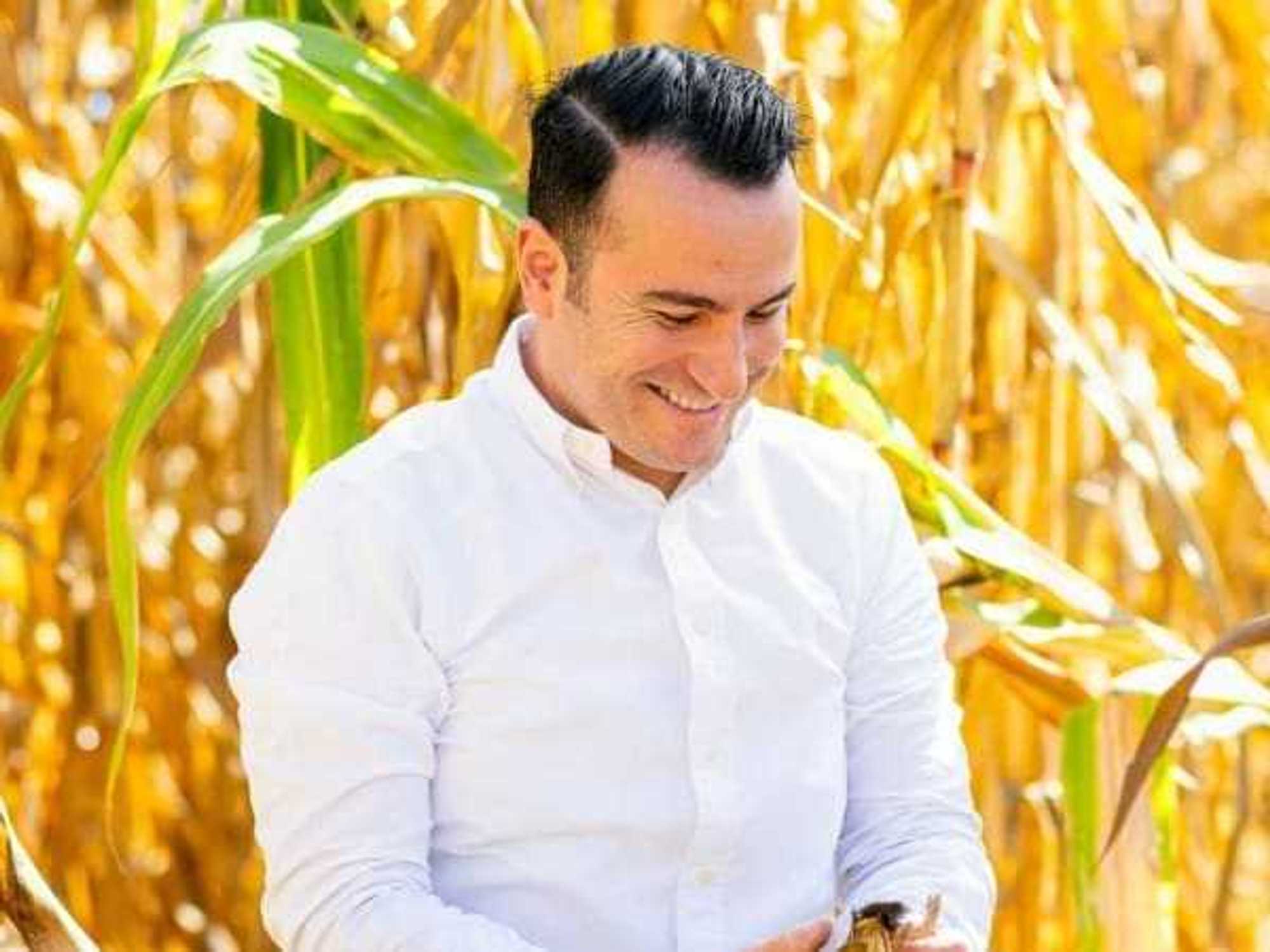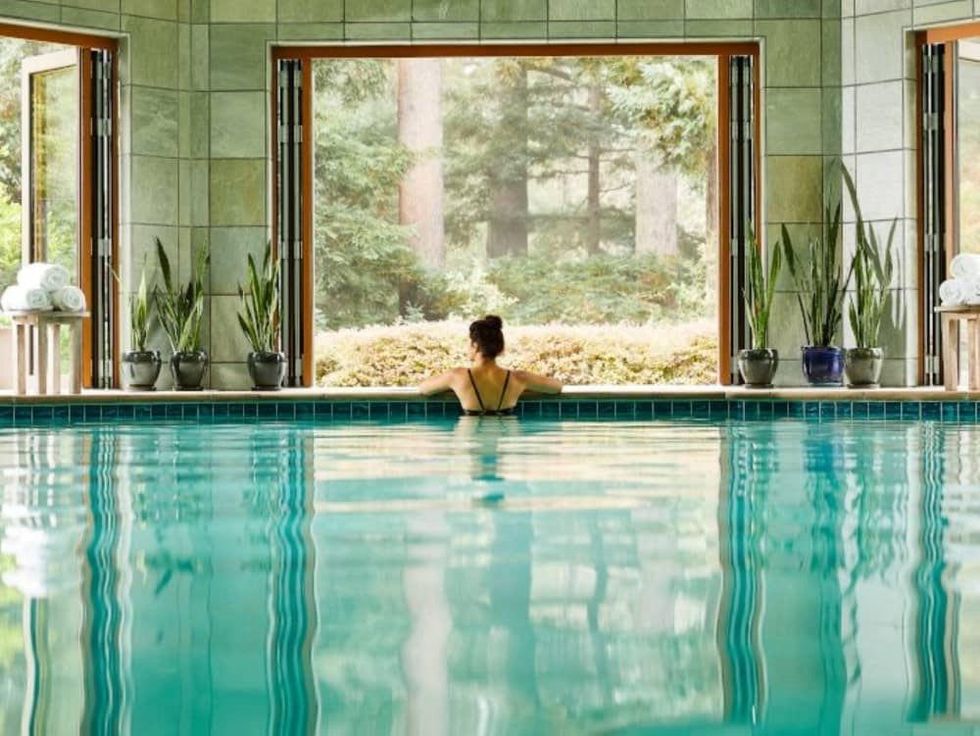Spring in bloom
Where to see beautiful bluebonnets in Dallas-Fort Worth and around Texas this spring

April is that magnificent month when bluebonnets blanket fields, pop up in parks, and dot roadways in every corner of Texas.
Our beloved state flower got a later start this year due to drought conditions last fall, and early plants got walloped in February's historic winter storm, experts say. While 2021 may not be a blockbuster wildflower season, the colors will still be beautiful around Texas for the next few weeks. In fact, with 2020's travel restrictions behind us, plans for spring bluebonnet festivals (presented safely amid the ongoing pandemic) are full speed ahead in hot spots like Burnet (April 9-11), Chappell Hill (April 10-11), Ennis (April 16-18), and Fredericksburg (April 24).
Following are some areas in Dallas-Fort Worth and around Texas where folks have reported beautiful bluebonnets already, or where they're reliable for gorgeous photos every spring. The list will continue to evolve. (Hot travel tip: As of early April, bluebonnets have been more robust in the Brenham area than the Willow City Loop area of the Hill Country, spotters say.)
And, don't forget: Bluebonnets aren't the only wildflower blooming. Indian paintbrush, Indian blanket, evening primrose, Mexican hat, anemone, redbud trees, Mexican plum, elbow bush, and coreopsis are also among the thousands of varieties that paint Texas with color throughout the season.
Dallas-Fort Worth roadsides and fields
Each year, bluebonnets paint the landscape along highways 635, 183, 121, and 114; they're blooming now in roadside fields near DFW Airport. There's a patch on a hill off 114 at Solana Boulevard in the Trophy Club/Westlake area that's become popular for family photos.
They're also dotting stretches of I-30 within the Fort Worth city limits (look up at the slopes near the Hulen exit) and along I-30 and I-20 toward Weatherford and Aledo.
Pretty patches also pop up north of Dallas proper. One favorite is near the J.C. Penney headquarters on Legacy Drive; another is around Zion Cemetery in Frisco/Little Elm.
The Tarrant County College South Campus has patches proving popular for photos. (So popular that TCC South is using photo of people taking pictures of bluebonnets as the main images on its website.) Bonus that you can park right there on campus, not on the side of a highway. Find it at 5301 Campus Dr., Fort Worth, 76119.
Glen Rose is a popular day trip from DFW; if you're heading toward Dinosaur Valley State Park or Fossil Rim Wildlife Center, look for bluebonnets along highway 67 and along county roads and rugged hills.
Parks, trails, and natural areas
The Native Texas Park, a 15-acre urban park on the grounds of George W. Bush Presidential Library at SMU, features a one-mile network of trails that walks visitors through native Texas environments, including spring wildflowers. Download a guide to the flowers here.
Plano's Bluebonnet Trail Greenbelt is popping with blooms. Bluebonnet Trail runs from Central Expressway to Midway Road, following an Oncor power line easement and along Spring Creek Parkway and Chase Oaks Boulevard; it intersects with the Chisholm Trail in the middle of Plano and connects with the Preston Ridge Trail at Carpenter Park. View maps of the trails here and here.
Cedar Hill State Park, normally bursting with color this time of year, dropped a wildflower update in a Facebook post April 6. Some bluebonnets and Texas paintbrush are in bloom now, and native plum trees have begun to bloom early; expect to see Indian blanket next month, they say. The best bluebonnets at the moment are along the mountain bike trails, but expect more in other areas next week, they say.
Ennis Bluebonnet Trails, running throughout the month of April, wind visitors through 40 miles of picturesque wildflowers. All indications are that they'll peak around the third weekend of the month, which coincides with the Ennis Bluebonnet Trails Festival, April 16-18. The festival includes food, shopping, art, and live music. Those interested in making the trek about 40 miles south of Dallas can check out maps and updates on the website and social media channels. Download the Ennis Y’all mobile app to get all the information on your smartphone.
Many Dallas parks have "no mow" wildflower areas, where colorful flowers dot pathways and fill fields in spring. According to the Dallas Park & Recreation website, parks with wildflower areas include: Flagpole Hill, Harry Moss Park, Bachman, Grauwyler, Kessler Parkway, Gateway, and many more.
Tandy Hills Hills Natural Area is a 160-acre indigenous prairie remnant east of downtown Fort Worth that's bursting with spring wildflowers: Yellow Star, Star Milkvine, Blazing Stars, Earth Stars, Sundrops, Prairie Celstial, Fringed Blue Star, and more. They regularly update their website with what's blooming and host some special events. Note: They report that visitors are trampling flowers and remind folks not to stand in flowers or walk off trail for photography. Do not pick flowers or leave any trace of your visit, they request.
Fort Worth Botanic Garden says lots of bluebonnets are in bloom throughout the garden, with many in the Rock Springs area, especially. You'll also see Chinese Snowball Viburnums, Crossvine ‘Tangerine Beauty,’ and Golden Columbine. Keep up with what's flourishing in the gardens via their Facebook page.
Elsewhere in Texas ...
Lady Bird Johnson Wildflower Center, Austin
For some of the most abundant and accessible wildflowers in the state, head to the Lady Bird Johnson Wildflower Center, roughly 12 miles southwest of downtown Austin. Open daily by reservation, the center has native gardens, wild meadows, and experts who can tell you what you’re looking at. They also host special events (in-person and virtual) and offer various resources on plants and flowers around Texas.
Fredericksburg
For many Texans, Fredericksburg is synonymous with bluebonnets. First stop should be Wildseed Farms, the largest working wildflower farm in the country. Then ask the locals for their favorite flower-viewing spots. Bluebonnets are expected to peak later than normal this year, and the Fredericksburg Bluebonnet Festival will happen April 24. Pro tip: Plan a mid-week F'burg getaway since weekends get mobbed during the spring. While you're in the area, don't miss the ...
Willow City Loop
One of the best drives in Texas is the 13-mile, two-lane Willow City Loop. A lot of people start in Fredericksburg, take State Highway 16 north approximately 13 miles and turn east on Ranch Road 1323 to Willow City. There are early April reports of pretty bluebonnets on the "upper" part of the loop. Even before it's a wildflower wonderland, it's still a pretty drive, traversing hills and creeks, offering gorgeous views of meadows and valleys. Warning: Roadside property along this route is private, so no wandering into the fields.
Muleshoe Bend Recreation Area, Spicewood
The bluebonnet fields are particularly abundant right now at this public park northwest of Austin. There are large patches of flowers on the riverbank, and it's easy to drive around and park a car to set up and take time for photo shoots (rather than pulling over on the side of the road). Find it at 2820 County Road 414, Spicewood.
Marble Falls
The bluebonnets are faring well in early April, and the wildflowers are blooming strong in this popular Hill Country town (and home to the famous Blue Bonnet Cafe). Bluebonnets, Indian paintbrushes, yuccas, and many other wildflowers are painting landscapes all over the area. Turkey Bend Recreation Area is a specific hot spot. Check out the guide to this year’s fresh patches here.
LBJ State Park and Historic Site, Johnson City
It should come as no surprise that this park enjoys fame for its wildflowers, as Lady Bird Johnson deserves much credit for the appreciation of them in Texas. Meadows surround the visitor center, and a nature trail wanders from there to the adjacent Sauer-Beckmann Living History Farm. While in Johnson City, head to Pedernales River Nature Park off U.S. Highway 281. It has lake and river frontage, as well as hiking and mountain biking trails and spectacular displays of the Texas Hill Country wildflowers.
Burnet
The town of Burnet north of Austin claims the title of Bluebonnet Capital of Texas. The town's beloved Bluebonnet Festival, April 9-11, includes live music, a carnival, food, races, birding and, of course, looking at flowers. Blooms line the highways in this area; some of the best are always State Highway 29 from Burnet to Llano and Ranch Road 2341 from State Highway 29 to Canyon of the Eagles Nature Park, where some of its many miles of trails wind among wildflowers.
Bandera
Driving Texas State Highway 16 from Bandera to Ranch Road 337 and then heading west toward Vanderpool and Leakey offers plenty of scenery any time, including glimpses of the Medina River, but in spring, wildflowers sweeten the route. Farm-to-Market Road 470 west from Bandera to Tarpley is another option, as are the roads around Utopia. The 5,000 acres of Hill Country State Natural Area have miles of trails through a variety of landscapes that traditionally offer abundant bluebonnets, Indian paintbrush, primroses, firewheels, wild petunias, and more.
Blanco State Park
The Blanco River flows through this small park an hour from San Antonio, where bluebonnet, Engelmann daisy, Texas paintbrush, firewheel, greenthread, and four-nerve daisy wildflowers bloom in spring. Enjoy picnic areas, camping, screened shelters, fishing, and kayak and tube rentals.
DeWitt County
Known as the Wildflower Capital of Texas, DeWitt County celebrates Wildflower Month in April. Places to enjoy it include a 132-mile loop formed by U.S. Highway 181 from San Antonio to Kenedy, Farm-to-Market Road 792 to Texas State Highway 80 to Nixon, east on U.S. Highway 87 toward Westhoff, then south to U.S. Highway 183/U.S. Highway 77A to Goliad, and the back to Kenedy on Texas State Highway 239 East. More than 1,000 different species have been documented on this route. The Cuero Chamber of Commerce provides downloadable maps of the area’s wildflower trails.
Brenham/Chappell Hill/Industry
Halfway between Austin and Houston, Brenham is a town that prides itself on its wildflowers (and on being the home of Blue Bell Ice Cream). Using "Flower Watch," visitors can check in almost daily on the Visit Brenham website to see what is blooming. Some spotters are raving about a field of bluebonnets behind a Walmart store. Prime viewing spots are along Highway 290 east and west as you drive into Brenham; FM 1155 to 2679 in Chappell Hill; and FM 2447 and Highway 290 at First Baptist Church of Chappell Hill (the church welcomes visitors, but requests that the parking lot remain open to members of its congregation). Immaculate Conception Catholic Church in nearby Industry has a vibrant field of bluebonnets and wildflowers, but note that it's private property.
Somerville-LaGrange-Ellinger
Between Houston and Austin, Lake Somerville State Park has fields of photo-worthy bluebonnets right now. The nearby towns of LaGrange and Ellinger do, as well; a scenic drive on Highway 71 in the area will bring many colorful stops, spotters say.
Houston area
The Houston area was the first to see bluebonnets in 2021, even before Winter Storm Uri hit. Currently, Wortham Park is a hot spot. Folks in Northeast Houston are reporting pretty fields, and thick patches can be found along a drive on I-45 north of the city. Further out, the Fannin Monument and other areas around Goliad have been popular for photos.
Rio Grande Valley
In the Rio Grande Valley, experts say to look for flowers in Starr County including bladder pods, bahia, bitterweed, and cow pen daisy. For a truly spectacular site, take a drive down FM 755 from Rio Grande City.
Big Bend National Park
The winter snows in Big Bend weren't quite enough to make up for the ongoing drought, park officials say. Spring wildflowers are not as abundant as some years, but you'll still find them. Look for bright pink Shaggy Stenandrium growing on limestone hills; the prickly pears are beautiful now, they say. Read more about what you'll see here.
Rules of the road
- Remember that while it isn’t illegal to pick the blooms, it is bad form. Leave them for others to enjoy and so the flowers can go to seed and make more for next year.
- By the same token, minimize trampling of the plants, as crushing them repeatedly (by, say, sitting on them) can destroy the flowers. Try to walk in other people's footprints in a field.
- Be aware that fields can also contain fire ants and the occasional snake. Be careful if walking through grass where it’s not possible to see where you’re stepping.
- Pulling over on the side of a highway for photos is never recommended. Find a nearby parking lot.
- Also, remember the "groups" rule. If you approach a pretty patch and another family is taking photos, ride on by.
- Finally, be respectful of private property — no climbing fences, going through gates, or driving up driveways to get that photo. You might get a less-than-warm welcome.
Resources to keep up with wildflower season
- Lady Bird Johnson Wildflower Center regularly updates information about the season on their website and social media channels. Here is a handy chart of some common Texas native plants and when they bloom in Central Texas.
- Texas Bluebonnets and Wildflowers is a public Facebook group in which members regularly post updates about what they're seeing around the state.
- Texas Parks and Wildlife Department's Flickr page and social media accounts usually get populated with wildflower sightings from state parks and wildlife management areas.
- The iNaturalist app will allow you to see what’s in bloom in different regions.
---
Melissa Gaskill and Katie Friel contributed to this report.

 Canyon Ranch operates some of the country's most acclaimed spas. Facebook Canyon Ranch
Canyon Ranch operates some of the country's most acclaimed spas. Facebook Canyon Ranch  If Estella is anything like Californios, presentation will be a huge factor.Photo courtesy of Californios
If Estella is anything like Californios, presentation will be a huge factor.Photo courtesy of Californios